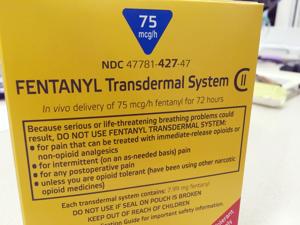Maine sees record numbers of opioid deaths

(The Center Square) – Opioid-related overdose deaths in Maine soared during the pandemic, which is driving calls for more drug treatment and prevention efforts.
There were 503 confirmed opioid-related overdose deaths in 2020, a 25% increase over 2019, according to data released Thursday by the Maine’s Attorney General’s office.
Attorney General Aaron Frey said the data shows that the opioid epidemic has been made worse by the coronavirus pandemic.
“We must urgently work to connect Mainers who are struggling with substance use disorder with the resources they need to protect them and help them advance in recovery, and we must come together as a community to get the COVID-19 pandemic under control so that barriers to treatment and support are removed,” Frey said in a statement.
The state announced on Thursday that it will begin posting data on overdose deaths on a monthly basis, instead of quarterly. It also plans to begin releasing data on nonfatal overdoses.
There were 58 suspected or confirmed drug overdose deaths reported last month, compared to 40 in January 2019, according to the latest report.
Gordon Smith, director of the state’s opioid response, said more frequent and detailed reports on opioid overdoses will help the state target its efforts to address substance abuse.
“The opioid crisis in Maine is often changing, and now we will have access to more complete and timely data to shift our response to meet these changes,” he said.
The report shows that fatal overdoses in Maine are still primarily driven by illicit drugs, including fentanyl, cocaine and methamphetamine. Most of the deaths, 97 percent, were caused by a combination of two or more drugs with at least one opioid involved.
Fentanyl, a deadly synthetic opioid, continues to be a factor in the deaths. The rate of fentanyl present among opioid-related overdose deaths where a toxicology report was available was 67%, according to the latest data. Other illicit drugs contributing to fatal overdoses included heroin, cocaine and methamphetamine, the report said.
Gov. Janet Mills has diverted tens of millions of dollars to expanding access to opioid prevention and treatment, as well as the overdose reversing drug naloxone.
Substance abuse experts say lockdowns and social distancing precautions have hindered access to medication-assisted treatment and counseling services for addicts.
Nationally, more than 81,000 people died of fatal overdoses between June 2019 and May 2020, according to the U.S. Centers for Disease Control and Prevention.
Disclaimer: This content is distributed by The Center Square
